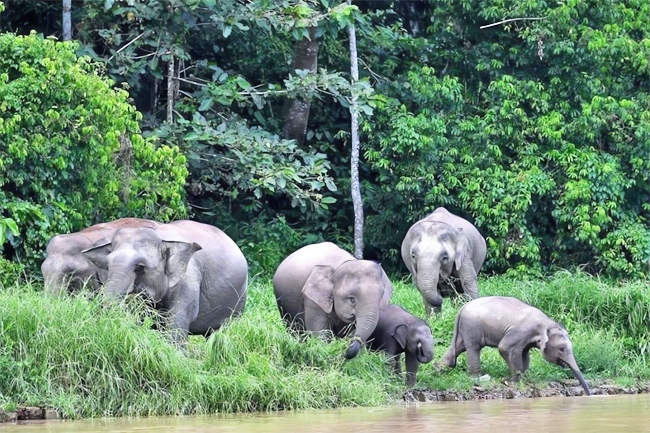TAWAU (BERNAMA) – A surge in black market demand and soaring prices for ivory is believed to be fuelling the illegal killing of Borneo pygmy elephants, following the grim discovery of mutilated carcasses in Kalabakan.
In response, University Malaysia Sabah (UMS) board member Samasuddin Yusop said the institution is ready to assist the government in raising awareness among local communities to help protect the critically endangered species from poaching-driven extinction.
“What’s happening now clearly relates to supply and demand. These poachers go to great lengths to kill elephants because the price offered for ivory is very lucrative,” he told reporters during the UMNO Kalabakan Hari Raya open house yesterday.
Samasuddin also stressed the need for authorities to intensify monitoring and enforcement efforts, particularly in Kalabakan, which lies along Malaysia’s border, making it vulnerable to
wildlife trafficking.
He added that he has engaged experts from the UMS Institute of Tropical Biology and Conservation to collaborate with local communities in Kalabakan, with a focus on introducing early education and awareness programmes in primary and secondary schools to highlight the importance of wildlife conservation.
He noted that the killings have also underscored growing tensions between conservation efforts and agricultural interests.
Elephants wandering into oil palm plantations have caused significant losses for farmers, prompting Samasuddin to urge government-linked companies and private sector stakeholders to collaborate with the state’s Ministry of Tourism, Culture and Environment (KePKAS) on long-term, sustainable solutions.
In January, a decapitated elephant carcass missing its legs was found near the Maliau Basin conservation area. A second headless carcass was discovered earlier this month, with KePKAS offering a MYR10,000 reward for information leading to the arrest of those responsible.
The Borneo pygmy elephant is a fully protected species under the Sabah Wildlife Conservation Enactment 1997.
Convictions for offences can carry hefty fines and prison terms. Yet the threat persists, as only an estimated 1,500 to 2,000 of these elephants remain in the wild, making them one of Malaysia’s most critically endangered species.



